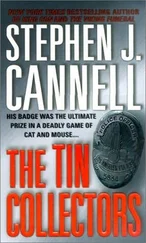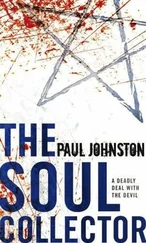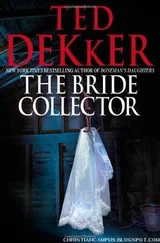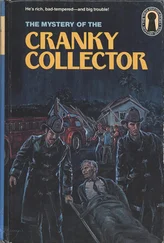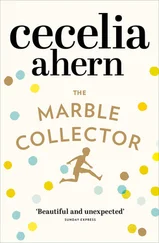He pressed against her in the entryway. “No,” he said. “You want to win as much as I do.”
“It’s not a race.”
“You know it is. It’s a race to patent first, and ship first, and file first. You and Veritech are already winning, so you pretend you don’t compete.”
“If I do race at times,” she said, “I’m not part of some demolition derby, trying to win at all costs.”
She was so beautiful, lecturing in the dark. He unbuttoned her coat and slipped her sweater off. He stroked her slender arms, and lifted her silk camisole, even as she scolded. Her moralizing was sweet, irresistible as words whispered in a foreign language. Her voice caught as he kissed her neck, and his hands traveled down, caressing her breasts, spanning her waist.
“The question is what sort of race you want to run,” she said, “and what sort of standards you set for yourself.”
He liked the way she tried to finish her thought, even as he took her nipple in his mouth. When he knelt before her, and he pulled off her skirt, and rolled down her thick winter tights, she couldn’t talk at all, but sighed as his tongue, hard and wet, pressed into her. She was warm, and she wanted him—her fingers dug into his shoulders. He’d behaved badly at dinner, but she was hungry anyway.
“You’re no different from me,” he whispered.
Yes, I am , she thought, even then, even at the edge of pleasure. Didn’t she believe in him? Of course she did. She wanted to. She longed for him. She ached for him, and when they lay down together on his unmade bed, she wrapped her legs around him. If she laughed at his impatience, she was impatient too.
Later, much later, when they’d had almost enough, he lay on his side, looking at her with his head resting on his arm. He was a direct lover, but he could be tender too.
She turned toward him, and they lay so close that when she spoke, her breath was the same as his. “Here’s the difference between us,” she said. “I trust my friends.”
“Not true! You don’t even trust me.”
Emily knew he was thinking about Veritech. “That’s something else.”
“Why?”
She hesitated, and then she said, “Because other people are involved.”
“Other people?” he scoffed, and he was right. Where were those other people now? What did they matter? She and Jonathan were a world unto themselves. When he touched her and stroked her face, all the longing of the past weeks eased. Or did it? Even as they kissed, she missed the kiss before, and the one before that. How strange the way every moment contained and at the same time hollowed out the last. She thought she should be satisfied, but she wasn’t. Why? Because she could not dissolve herself. She wanted to forget herself with him, and give herself to him. No you don’t, she told herself. You don’t want to give yourself to any man. But she did. She wanted to belong to him—an antique notion, silvery as Ingrid Bergman’s fine features, sad as Bogart’s gravel voice.
She embraced him, pressed against him, but even as she throbbed again, Emily’s cooler self, observing her entanglement, looked down upon her limbs and his. Her reasonable soul broke in, interrupting at the worst possible, or rather, the best possible, moment to ask: Who is this man? And who are you? Do you love him? Does he love you? And how can you tell? What proof do you have? Only kisses melting into air. Touch forgotten in an instant. Don’t you have some better evidence than that?
Yes, she had evidence. She would prove herself to herself. Satisfy his curiosity and confide in him, share her work, her life, her most secret joy.
“I’ve got Alex working on password authentication,” she whispered. “It’s a new system called Verify, with a feature called electronic fingerprinting.” He held still as she told him. He seemed to hold his breath as she explained how the system recorded every user of every piece of data—a graphic history of each touch.
“Stop.”
“Did I say too much?”
“Of course not,” he said, but his voice was surprised. He’d never imagined she would confide so much in him. He was moved by the gesture. Overwhelmed.
She rested her head on his chest. “Tell me something too.”
She heard his heart beat faster. Why? Surprise? Chagrin? He was supposed to be the demanding one, the instigator.
“Tell me what’s really wrong with Lockbox.”
“What do you mean, ‘what’s really wrong’?” Jonathan asked softly, defensively.
Oh, she was proving his point. She was like him after all, competitive, even now. No, that wasn’t right. She only wanted parity, a fair trade of information. That wasn’t right either. All she wanted was to draw him in and hold him close. “What did Orion find?” she pressed. Curious, just like Jonathan. Alert, insatiable as he was. “Tell me.”
Part Three
High Fliers
November and December 1999
Information was currency, and Jonathan understood this better than most. After all, his company encrypted Web transactions. Credit-card numbers, personal data, customer preferences—these were valuable, but other bits shimmered as well. Information about rival companies, hints at future trends, insider tips. In graduate school Jonathan had studied cryptography. In business he sold electronic Lockboxes and ChainLinx fence, but in life, his instinct was to trade on secrets, not to keep them. Therefore Emily’s information about electronic fingerprinting tempted. Alex’s idea was dark and clever, and while Jonathan was not sure exactly how such a scheme would come to market, he sensed its value. He had a strategic mind, and he could already envision a world in which some spied with electronic fingerprinting, and others tried to defend themselves against it with new ISIS products. What if ISIS developed an encryption service of its own? He could almost … but he loved Emily, and he would not violate her trust.
He had grown up in Nebraska, where he and his brothers rode the school bus an hour and a half each way. His parents, Dan and Jeannie Tilghman, had been farmers, and raised him to be smart, ambitious, and unsentimental about country life. When it came to living off the land, his mother told him, “Don’t even think about it.” And when it came to school, she said quite seriously, “You’re smarter than anyone there, including the teacher.”
By fourth grade Jonathan was working independently, whiling away the hours memorizing digits of pi. In fifth grade he studied bookkeeping on his own. He was known as a math genius, but he was also the fastest runner in his class. He could beat anyone in the sixty-yard dash, even Scott Livingston. In revenge for this, Scott lured him into a game of Crack-the-Whip at recess. Watching his classmates holding hands, tugged by the leader in a snaking line whose tail moved ten times faster than its head, Jonathan was tempted by Courtney Cahill, the girl everybody knew Scott liked. She was freckled, her eyes copper-brown with long lashes, her hair streaked gold from the sun. Jonathan stepped between Scott and Courtney and took her hand, the first girl’s hand he’d ever held, and as the line whipped back, he felt her soft palm against his, a rush of delight, and the next moment, an explosion of pain on the side of his face, smack against his nose. Scott had stepped out of line and thrown a roundhouse right. Jonathan fell to the ground with blood gushing from his broken nose. Kids swarmed, girls screamed. The teachers were coming, but Jonathan sprang up and sprinted after Scott all the way across the playground. Heart racing, shirt drenched red, he chased his enemy down, caught him from behind, and slammed him to the hardtop. He punched Scott in the face until he was bleeding on the painted hopscotch squares.
Читать дальше




